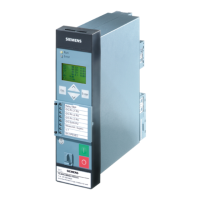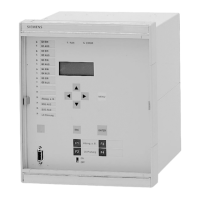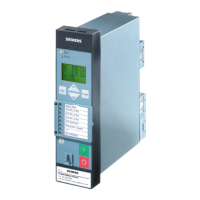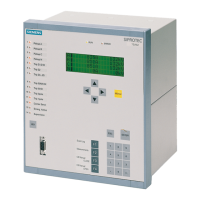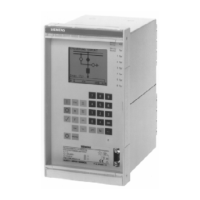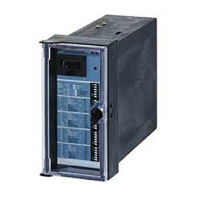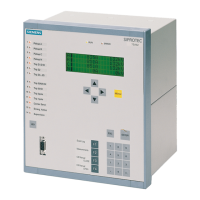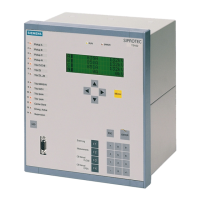' $ ! $!& #$"&&"! Ċ (%& !' $$ !"
5 - 10
Siemens AG ⋅ January 1999
both high-voltage cables and protective cable). In adĆ
dition, the lines can be isolated via transformers,
which serves to sectionalize the longitudinal voltage.
The induced voltage can be calculated using the folloĆ
wing formula:
U
I
=2 @ M
k1
@ l @ r
1
@ r
2
with
U
I
= Induced longitudinal voltage in V,
f = Nominal frequency in Hz,
M = Mutual inductance between power lines and
pilot wire in mH/km,
k1
= Maximum single-phase fault current in kA,
l = Length of parallel section between power
lines and pilot wires in km,
r
1
= Reduction factor of power cable
(1 for overhead lines),
r
2
= Reduction factor of pilot wire cable.
Only half of the calculated induced voltage needs to
be taken into account as it builds up at both ends of
the isolated-neutral pilot wires.
The external electric circuits of the 7SD600 are desiĆ
gned for 2 kV rated voltage. Pilot wires with max. 2
kV rated voltage can therefore be directly connected.
Warning
The longitudinal voltage in the pilot wires
(induced by the earth-fault current)
must not exceed a max. 60 % of the raĆ
ted voltage.
This means that if 1.2 kV is exceeded, the devices
must be electrically isolated from the pilot wires by
isolating transformers. The rated voltage of the pilot
wires may make a further sectionalization necessary.
Even if isolating transformers are used, the voltage
must not exceed either 60 % of the rated voltage of
the isolating transformer or 60 % of the rated voltage
of the pilot wire!
This isolation can be achieved using the isolating
transformer 7XR9513 (Figure 5.8). The center tap T1
on the side facing the relay must be earthed to elimiĆ
nate the risk of electrical shocks. On the pilot wire
side, the center tap T2 must not
be earthed.
Caution
The pilot wires must not be earthed or
fitted with surge arrestors.
7SD600 7SD600
K1
L1
L2
T2
K2
K1
L2
T2
K2
L1
T1 T1
T2 must not
be earthed!
1
2
1
2
T2 must not
be earthed!
7XR9513 7XR9513
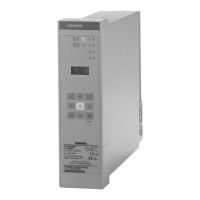
